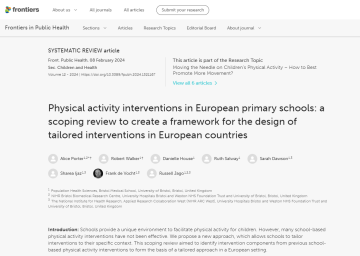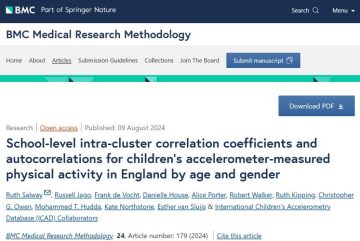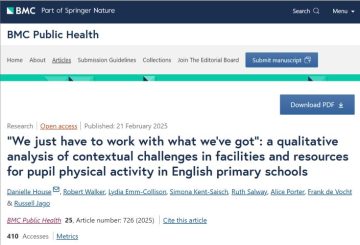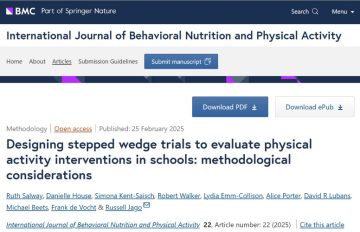PASSPORT: Creating a school-specific physical activity portfolio
Theme Diet and physical activity
Workstream Population diet and physical activity
Status: This project is ongoing
Physical activity is important for children’s physical and mental health. The UK government recommends that all children should spend an hour each day doing something that gets them slightly hot, sweaty and out of breath.
Schools are key to helping children be physically active as almost all children attend them. However, by the end of primary school around half of children do not meet the recommended hour of physical activity each day.
There have been many different attempts to increase activity levels among children at school. With a few exceptions, these haven’t really worked. Most research studies use the same approach in each school to encourage children to be physically active. However, each school has a different setting, facilities, leadership and pupil profiles.
We need a new approach that supports schools to tailor physical activity programmes to their specific needs and context.
Project aims
This research study is looking at how to make school-based physical activity programmes that are tailored to individual primary schools.
We are creating a tool for schools to assess their physical activity provision and needs, identify any areas that can be improved, and develop bespoke programmes to support pupils’ physical activity. Once this tool is developed, we will test the approach to measure its success, to see if physical activity levels change.
What we did
This study is ongoing. Work completed so far has included:
- A review of physical activity programmes in schools, to find out what is already known about this topic
- Questionnaires to find out how schools across Bristol are supporting physical activity
- Interviews with primary school staff and wider communities to find out which aspects of a school play a role in helping children to be physically active
- Research in three primary schools to help understand their systems, decision making and priorities, and how these impact children’s physical activity
- Designing a trial to assess how well our tool to support physical activity in schools works
What we found and what this means
From our research so far, we have a broad sense of how schools across Bristol are supporting physical activity. We also understand which aspects of a school play a role in helping children to be physically active.
Based on this knowledge, we have produced a set of interventions that could be introduced in schools to increase children’s physical activity. We have also designed a trial to assess how well the tool we are developing to support physical activity in schools works.
What next?
We are creating a tool to support physical activity in schools, in workshops with school staff. This tool will help schools assess their physical activity provision and needs, identify any areas that can be improved, and develop bespoke programmes to support pupils’ activity. We are using the insight and evidence from our research so far to develop this tool. Once it is developed, we will trial the approach to measure its success.

Rethinking children’s physical activity interventions at school: A new context-specific approach

Physical activity interventions in European primary schools: a scoping review to create a framework for the design of tailored interventions in European countries

School-level intra-cluster correlation coefficients and autocorrelations for children’s accelerometer-measured physical activity in England by age and gender

“We just have to work with what we’ve got”: a qualitative analysis of contextual challenges in facilities and resources for pupil physical activity in English primary schools
